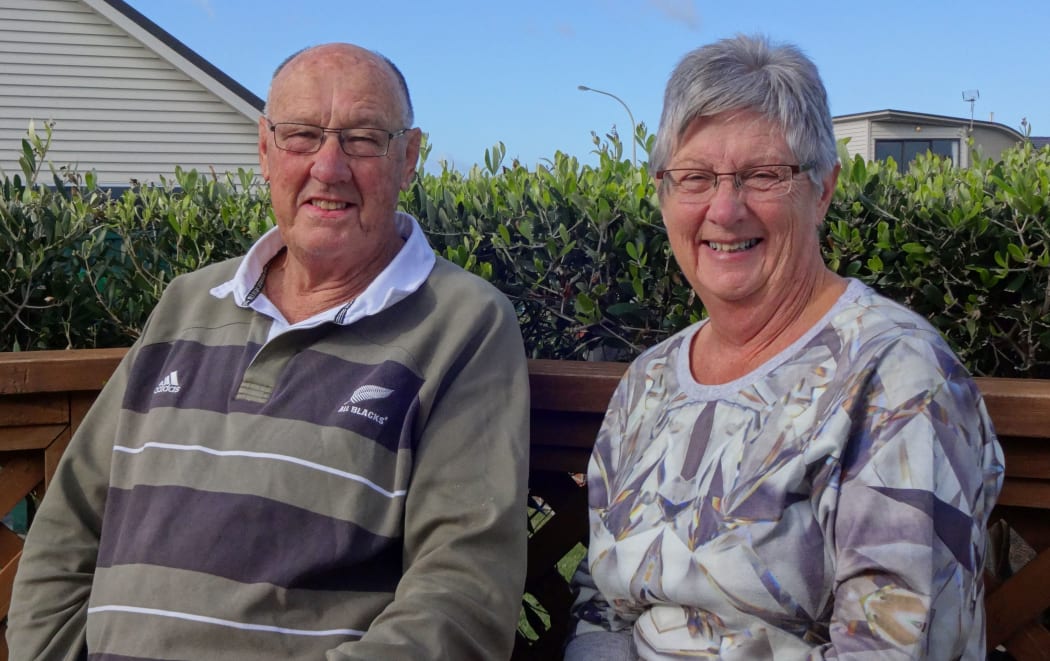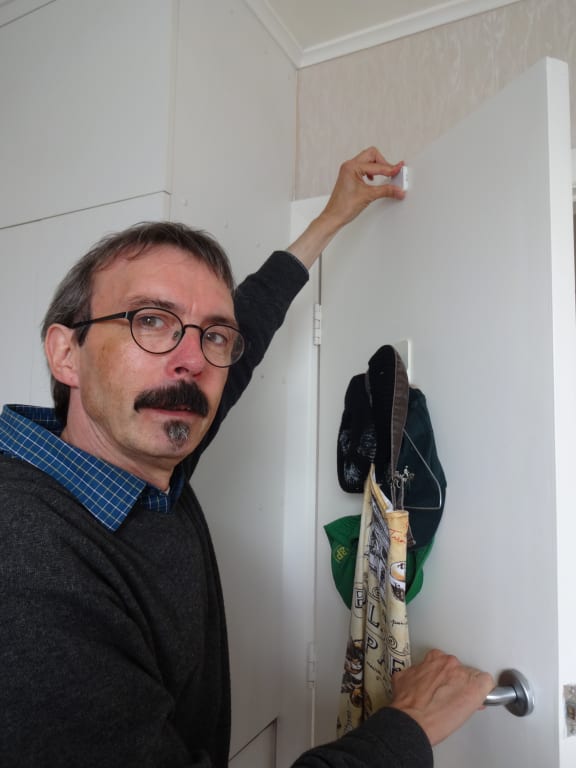One hundred New Zealand homes are part of an international research project to monitor how people ventilate their houses, how that controls moisture build-up and how much heat may be lost in the process.

Avis and Fred Steed are part of a 100-homes study conducted by BRANZ to track what people do to keep their homes warm and dry. Photo: Veronika Meduna / RNZ

Ventilation is an important part of keeping a home healthy, particularly in winter. If a house isn’t ventilated enough, air pollutants and moisture accumulate and can lead to mould growth. But too much ventilation means that heat escapes and power bills go up. Photo: Veronika Meduna / RNZ
BRANZ has joined an international ventilation research project, under the umbrella of the International Energy Agency, which equips homes with several sensors that track how moisture and temperature move through rooms, while at the same time monitoring how often occupants open their internal doors and windows.
Homes from across New Zealand are part of this study to capture any climatically driven differences in behaviour. Room temperatures, relative humidity and ventilation behaviour during winter is of primary interest, but some homes will also be looked at over the summer.
This project builds on earlier BRANZ research that found that newer homes are more air tight than older buildings. About 200 houses, throughout the country and of different ages, were tested and showed that in buildings from the 1940s air infiltration through strip lining and gaps under front doors provided most of the ventilation.
In more modern homes, it’s important that home owners open windows to allow air to circulate and to reduce moisture build-up, but in winter, that can come at the cost of heat loss.

